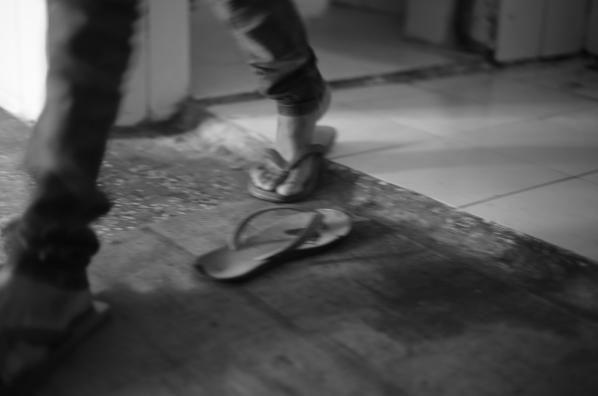The Homeless Battle Against Drug Addiction

NEW DELHI: The de-addiction centre in Kotla Mubarakpur run by SPYM, houses 15 people in their rehab centre which opened in 2014. 175 people have been admitted since the centre opened.
Addictions are of different kinds- alcohol, smack (heroin), marijuana, drug cocktail injected intravenously. Sanjeev the Project Manager of the centre said that three programs are run --- the TI (Targeted Intervention), the rehabilitation program and the night shelter, all being interlinked.
A person who comes out of the addition at the centre often becomes a “peer”, in that he or she helps the outreach workers of the centre by informing them of where drug addicts can be found. They are paid Rs 3300 per month as wages. Outreach workers go to the field, meet such addicts, try to convince them to come to the centre or try and help them at the spot. The local police also helps out in getting people to the rehab centre. People are kept in the rehab between 30 to 90 days. People who are discharged after they have recovered are visited by social workers for follow ups. About 50% do not get back to their addiction habits according to the centre officials.
Mukesh a recovered addict, who was once vegetable seller, has been associated with SPYM since 7 years, he was treated here and presently works with SPYM. He said that earlier a cocktail of drugs (18 ml)- this cocktail consists of different pain killers--- could be bought for Rs 40/50, but presently this costs Rs 150/200.
Homeless, labour class people are prone to HIV infections from intravenous drug usage because they are not educated and they are not aware that syringes should not be shared. They purchase a cocktail or a set of drugs and a syringe and share this amongst themselves. One person in the group is referred to as ‘doctor’ who helps them inject themselves, as often their veins are blocked because of heavy usage. The ‘doctor’ gets an extra share of the drug cocktail for the services.The maximum number of people who come to the centre are victims of smack and intravenous drugs.
Dr Muhammad from the AIIMS program which started in the centre from August 2016, said the recovery period of a drug abuse patient depends on how long he has been an addict, but also on the individuals motivation level, the social surroundings, family support. According to the doctor, medicine contributes just about 25%, the final recovery being largely dependent on the motivation level of the patient.
A counsellor Megha from AIIMS who counsels addicts who come to the OPD of the centre, said that if a patient is accompanied by a family member it is seen as very positive, as the addicts need help and cannot always manage the program on their own. Relapse chances remain high always, and the patient has to be closely watched and monitored. Patients who come in voluntarily have higher chances of recovery than the addicts who are forcibly brought for treatment, as the former are more receptive to counselling.
Vicky, a rehab resident admits that he was a multi drug addict for 15 years, he once had a flower shop, but after he became an addict his family did not let him work in the shop because he stole money and spent it on drugs. Both he and his family are counselled every 15 days. He said that presently he’s concentrating on his treatment, and later he will take a call on his future.
The children’s de-addiction centre at the Delhi gate run by SPYM houses 46 kids. Danish a 12 year old from Seelampur, whose parents have been missing for three years, was caught by the police near Yamuna Nagar, sent to court where it was decided that he should be sent to the de-addiction centre at Delhi Gate. He said that he had run away once from Madan Mohan Malviya Hospital where he was sent for a checkup, and later was caught by the police from the same place from where he had been picked up the first time. He admitted to having engaged in self-injury in the past, with his forearms covered with scars from blade cuts.
Deepanshu another boy was caught from the New Delhi railway station, who had also escaped once from the centre.
Mukesh another 12 year old had been in the centre for four months, he had run away from his home in Uttar Pradesh, and come to Delhi.
The kids’ daily routine consists of one hour session of Just for Today, where kids talk about a given topic everyday. Later from noon they have academic classes, followed by lunch, then lessons resume from 3 till 4, followed by games and an hour of TV.
Vinod a recovered drug addict, who is a volunteer in the centre, said that the kids have counselling sessions on a regular basis, He said that the children were kept at the centre for a minimum of three months, and those who did not recover in the first three months, were kept for a further three months.
(Photographs ROHIT RAJVARDHAN)



